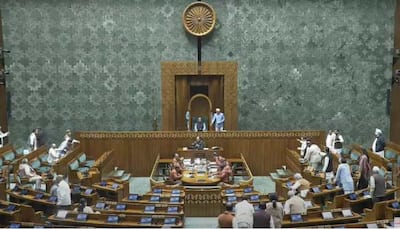The Lok Sabha experienced significant disruptions throughout the Winter Session of Parliament, which ultimately resulted in the loss of over 70 hours of parliamentary time.
The session, which began on November 25, concluded abruptly with the announcement of a sine die adjournment on December 20, amidst ongoing protests by opposition MPs stemming from a scuffle on December 19.
According to official reports, the disruptions affected each phase of the Winter Session. The first session saw the Lok Sabha lose 5 hours and 37 minutes, while the second session lost 1 hour and 53 minutes.
However, the third session experienced a major setback, with a staggering 65 hours and 15 minutes lost due to interruptions. This session alone accounted for the lion’s share of the total disruption time.
The disruptions also significantly impacted the amount of time dedicated to debates. In the first session, the Lok Sabha recorded 34.16 hours of discussions.
This figure rose to 115.21 hours during the second session, showcasing a marked increase in engagement.
However, by the third session, the debate time plummeted to just 62 hours, reflecting the mounting disruptions that hindered legislative proceedings.
Efforts to Recover Lost Time
Despite the frequent adjournments and disruptions, Members of Parliament (MPs) made considerable efforts to address the backlog of work. In an attempt to make up for lost time, extended sittings were held. MPs worked late during the first and second sessions, putting in a total of 7 and 33 extra hours, respectively.
During the third session, the House extended proceedings by 21.7 hours in a bid to complete the scheduled business.
In terms of legislative business, the session saw mixed progress. No bills were introduced in the first session. In the second session, the government introduced 12 bills, of which four were passed in the Lok Sabha.
The third session saw the introduction of five bills, and four of these were successfully cleared.
– Coastal Shipping Bill, 2024
– Merchant Shipping Bill, 2024
– Constitution (One Hundred and Twenty-Ninth Amendment) Bill, 2024
– Union Territories Laws (Amendment) Bill, 2024
– Appropriation (No. 3) Bill, 2024
– Banking Laws (Amendment) Bill, 2024
– Railways (Amendment) Bill, 2024
– Disaster Management (Amendment) Bill, 2024
– Appropriation (No. 3) Bill, 2024
A significant portion of the proceedings also involved matters raised under Rule 377, which allows MPs to bring up issues not related to parliamentary procedures. In the third session alone, 397 matters were raised under this rule, highlighting the ongoing concerns MPs sought to address. In comparison, the second session saw 358 matters raised, and 41 were raised during the first session.
Rule 377 allows MPs to notify the Secretary-General in writing about matters they wish to bring up for discussion. The Speaker must approve the matter and determine the time and date it will be addressed
Stay informed on all the , real-time updates, and follow all the important headlines in and on Zee News.






